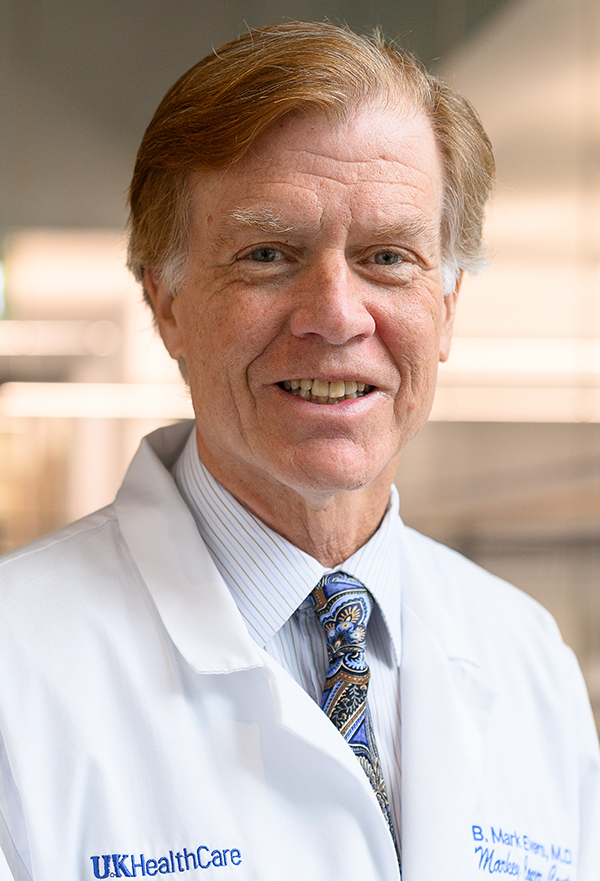Few tales better illustrate Kentucky’s reputation for resiliency than our change in the fight against lung cancer. Although our state has historically had the highest rate of lung cancer in the country, the rate of late-stage lung cancer has decreased at a pace twice as high as the national average since 2013, when the University of Kentucky Markey Cancer Center was initially designated as a National Cancer Institute. The second-highest lung cancer screening rate in the United States is currently found in Kentucky, which is saving lives by detecting cancer early while it is still curable.
Long-term federal funding for cancer research is directly responsible for this outstanding advancement. However, this development is now in jeopardy.
The National Institutes of Health would lose research opportunities at a time when advancements are speeding up, delay cancer clinical trials, and curtail crucial screening programs as a result of the proposed 40% cut.
UK Markey Cancer Center serves patients from all 120 counties in the Commonwealth and is the only NCI Comprehensive Cancer Center in Kentucky. Half of them are from Eastern Kentucky, while 97% are from Kentucky. Of the roughly 29,000 Kentuckians who are diagnosed with cancer each year, 38% receive treatment at Markey or at one of our 20 partner locations throughout the state. People from 110 counties signed up for our roughly 90 active clinical studies last year.
Additionally, as an NCI cancer center, our goal of providing cancer care throughout the Commonwealth depends heavily on federal funding from the NIH and National Cancer Institute.
Markey now supports more than 370 research projects with more than $37.5 million in NIH funding for cancer prevention, clinical trials, and research. When conventional treatments are insufficient, this provides funding for clinical studies that provide patients alternative choices. It encourages educating the upcoming generation of physicians and researchers. Additionally, it maintains the infrastructure that makes it possible for laboratory discoveries to reach patients in rural Kentucky at the same speed as those in large cities.
Kentucky patients can receive the newest medicines, including those for aggressive, uncommon, and treatment-resistant malignancies, without having to go outside of the state thanks to several of Markey’s NIH-funded clinical trials. For instance, a new standard of care was established for aggressive brain cancer after a trial that combined radiation and a novel chemotherapy dramatically improved results. Eighty-six percent of patients who received a novel treatment for rare intestinal tumors remained cancer-free one year after other treatments had failed. In order to give hope to the one in four patients who currently face recurrence, a third trial is examining if continuing immunotherapy after first treatment can prevent throat cancer from returning.
Additionally, by keeping skilled researchers and physicians in Kentucky, this government funding supports our communities and economy. Markey boosted direct employment by 172% between 2011 and 2023, while the state had 13% growth. Almost one more employment is created in Kentucky for every job we support.
Lung cancer is only one part of Kentucky’s remarkable cancer recovery. Colorectal cancer presented us with the same sobering fact twenty years earlier. Today, however, colorectal cancer screenings have increased statewide, reducing incidence and mortality by over 30% thanks to research-driven interventions and community activities. To put this into context, these improved screening efforts result in 275 fewer colorectal cancer deaths and 650 fewer colorectal cancer diagnoses for Kentuckians annually.
The advancements we’ve made in Kentucky show what may happen when science and persistent dedication come together. In Kentucky, cancer used to be a death sentence, but because to our research, clinical care, and prevention efforts, it is now becoming more manageable. Thanks to developments in cancer research, over 300,000 long-term cancer survivors are still alive and well in Kentucky today. The future of Kentucky’s cancer success story is on continuing the research investments that made it possible.
I have more than 30 years of experience treating cancer patients as a surgical oncologist. I have been the most hopeful that we are making progress against this fatal illness throughout the past ten years. Innovative treatments that target particular cancer mutations and use the patient’s immune system to combat and eradicate tumors are being made possible by federal financing. More cancer patients are surviving than ever before as a result of these advancements. In fact, we are discussing treatments for specific types of cancer, which is something I never imagined I would see in my lifetime.
The University of Kentucky Markey Cancer Center, Kentucky’s only Comprehensive Cancer Center designated by the National Cancer Institute, is directed by Dr. B. Mark Evers, M.D.






